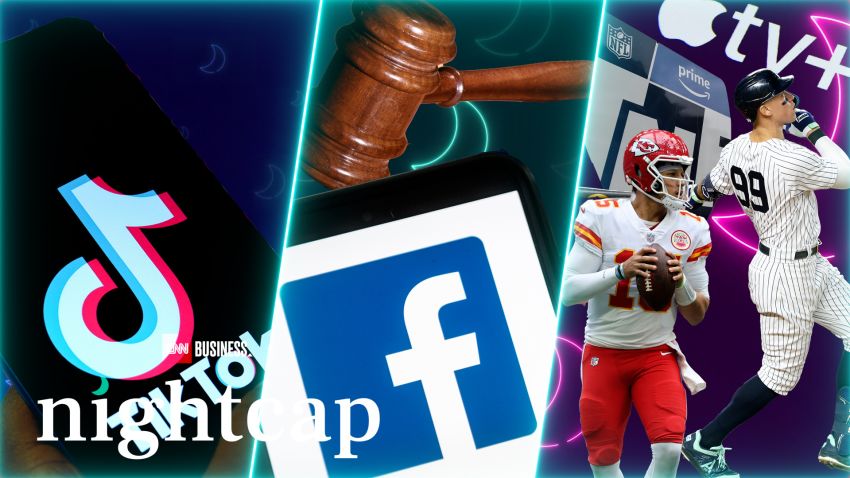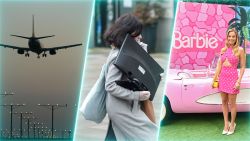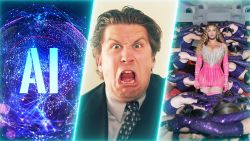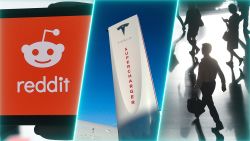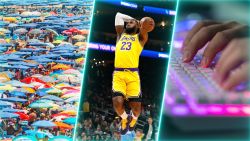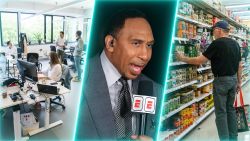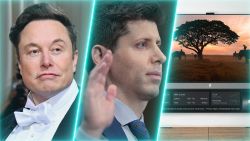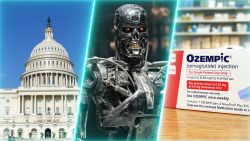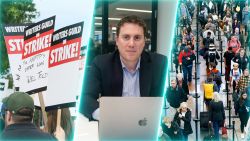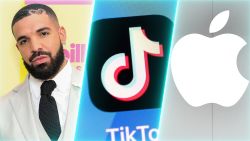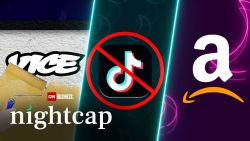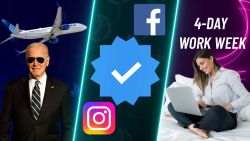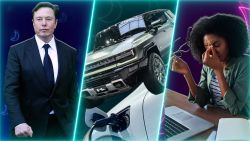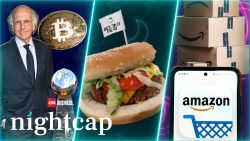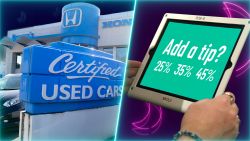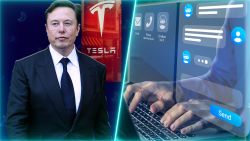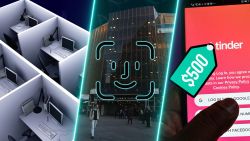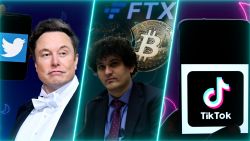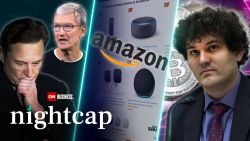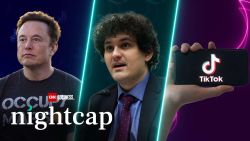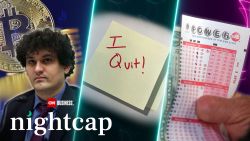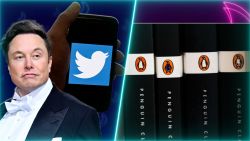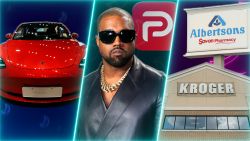This story is part of CNN Business’ Nightcap newsletter. To get it in your inbox, sign up for free, here.
Elon Musk has now found himself potentially saddled with paying $44 billion for a company he said in recent months that he no longer wanted to buy.
Following news of his renewed willingness to purchase Twitter, Musk took, fittingly, to Twitter to claim that the acquisition would be merely one step toward creating an “everything app” he called “X.”
While Musk did not elaborate on what he meant by an “everything app,” he could be taking inspiration from so-called “super apps” like Tencent-owned WeChat.
However, despite his many successes, Musk has also left in his wake a long list of un- or under-realized promises for similarly ambitious technologies.
He’s not produced a long-promised electric truck for sale, programmed a Tesla to safely or reliably drive itself, or whooshed anyone through a tunnel at great speed.
And why would he? Those aren’t things he does. Those are just things he has said he’s going to do.
Here’s the thing: As Musk and his team of lawyers seemingly try to close the deal to avoid going to trial over the mess he made of the Twitter takeover, the man’s reputation is being crystallized. And it’s not the Eccentric Business Genius reputation he has worked so hard to cultivate.
Let’s step back: Tesla shares jumped nearly 1,900% between 2018, when it first became profitable, and its peak in this past spring. That surge was predicated on Tesla’s promise to become the car company of the future.
Soon, Musk told the world, Tesla would build cars that drove themselves. Not only would Tesla vehicles be fully electric, they would come with the option of “full self-driving” software that would allow them to pilot themselves. An unfinished version of this software is currently available, but it requires an attentive human behind the wheel.
He claimed that a new Tesla Roadster model — unveiled in 2017 but still not in production — would come with “rocket thrusters” to propel it to face-smashing velocities. Tesla, he said in 2019, was going to build an all-electric “Cybertruck,” which has yet to go into production. He claimed just this week that the Cybertruck would be “waterproof enough to serve briefly as a boat.”
A Tesla-produced semi truck, he promised in 2017, would transform a trucker from a driver to a high-level systems supervisor, all while removing countless tons of choking emissions from the roads and would revolutionizing the supply chain industry. Musk has said the semi will begin shipping by the end of 2022.
He has claimed each year since 2019 that he hoped, through his brain-computer interface company Neuralink, to implant a chip into the brain of a human test subject the following year.
And to be sure, he has managed to make over a million cars from factories all over the world. With SpaceX, he put humans into orbit and landed the rockets nice and neat next to the launch pad. Those rockets are now launching more payload than the rest of the world combined.
But there’s also a long list of things Musk has not delivered.
There were the battery swapping stations.
“Full Self Driving.”
The Cybertruck.
The new roadster.
The semi.
The brain-computer interface.
The hyperloop.
We’re not holding our breath for that one.
Instead of getting all those world-changing inventions, we’ve got Tesla. Which isn’t bad! All things considered, Tesla is a good carmaker that’s managed to maintain its lead in the increasingly crowded electric vehicle market.
But while Musk was busy running multiple companies, tweeting about crypto and conspiracies and trying to buy Twitter, Tesla’s competition has been busy working.
Ford has its F-150 Lightning electric pickup truck, which was so popular that Ford had to close the reservation site after receiving over 100,000 reservations to purchase a truck.
GM’s Silverado EV is due out next year, as is the all-electric Chevy Equinox, with a price tag under $30,000, far less than the least expensive Tesla.
Mercedes has luxury electric sedans and SUVs, positioned precisely in the same segment of the market as Tesla’s original Model S and Model X, neither of which has had a major update since they first debuted a decade ago.
Porsche has the Taycan. Hyundai, Volvo, BMW, and Volkswagen all have electric models that are just starting to not just compete with Tesla’s offerings, but to move beyond those market segments.
Mike’s Two Cents
At the risk of being the feared Biased Journalist, I want Elon Musk to succeed. Not because I have any investment in Tesla. But because if Musk is right, I desperately want to be wrong. I want cars to safely drive themselves, saving thousands of lives each year. I want robots to enable a life of leisure (never mind that most “labor saving” devices only serve to squeeze workers further). I want cars to all be free of carbon emissions.
But at some point, people are going to stop giving Musk time and money.
The image of Musk, the great prognosticator, the dreamer, and all the rest, is already giving way to Musk the huckster, the swindler, the immature and easily distracted troll.
Read more
- Elon Musk’s Twitter acquisition isn’t a done deal yet. Twitter and Musk on Wednesday had yet to reach an agreement on ending the litigation, which would avert the trial that’s set to take place in less than two weeks, a person familiar with the negotiations told CNN.
- Donald Trump, who was kicked off Twitter over his role in the Jan. 6 violence, could be back on the platform before the midterms if Musk’s takeover deal goes through.
- Musk’s “everything app” idea sounds an awful lot like China’s WeChat.
NUMBER OF THE DAY: 2 million
Saudi-led OPEC and its Russian allies are giving a big middle finger to the West in general and the Biden administration in particular. The group, known as OPEC+, is slashing oil production by 2 million barrels a day, the biggest cut since the start of the pandemic.
The group of major oil producers, which includes Saudi Arabia and Russia and controls more than 40% of global oil production, is hoping to preempt a drop in demand from an economic slowdown.
It’s really not great for the Biden administration, which now faces the prospect of US gas prices rising just weeks ahead of the midterm elections.
What else is going on?
Stocks: After a day with lots of ups and downs, US stocks were mostly flat Wednesday, snapping a two-day rally. On Wall Street, sometimes good news — like economic data showing a strong job market — is bad news. Investors know that a strong labor market will signal to the Fed that the economy can handle more tough interest rate hikes to tackle inflation. The more the Fed jacks up borrowing costs, the bigger the risk of causing a recession.
The Dow ended the day with a loss of a little more than 40 points, or 0.1%. The S&P 500 and Nasdaq fell 0.2% and 0.3% respectively.
Stressed: (From the FT) Wall Street players are warning about the risk of a “market accident” as the financial system comes under more and more stress. A Treasury Department gauge of strain in US markets has soared to its highest level since May 2020, which was a, um, stressful time. Here’s an illustrative take on the situation: “This is a story about boiling lobsters. You put them in cold water and slowly turn the heat up,” George Goncalves, head of US macro strategy at MUFG, told the Financial Times. “That is what is happening in markets. The Fed is turning up the heat. But because the market is still flush with liquidity, it’s not yet clear where the weakness is.”
2008, Part II?: So, look, we’re probably (technically) already in a housing recession. But real estate developers aren’t sweating. David O’Reilly, CEO of Howard Hughes Corp., said he’s not terribly worried about another crash like we saw in ’08. “We had a massive oversupply when Lehman hit the wall,” he said. But these days, demand still outstrips supply, especially in cities where Howard Hughes has a big presence, such as Phoenix, Las Vegas and Houston.
Bye Bye, Chi: (Bloomberg) Tyson Foods is following in the footsteps of Citadel and Boeing, moving its corporate offices out of Chicago. Tyson said it’s moving all its white-collar staff to its Springdale, Arkansas, headquarters. That means employees from Chicago will relocate. Which, uh, will be quite an adjustment, one would think.
Enjoying Nightcap? Sign up and you’ll get all of this, plus some other funny stuff we liked on the internet, in your inbox every night. (OK, most nights — we believe in a four-day work week around here.)


